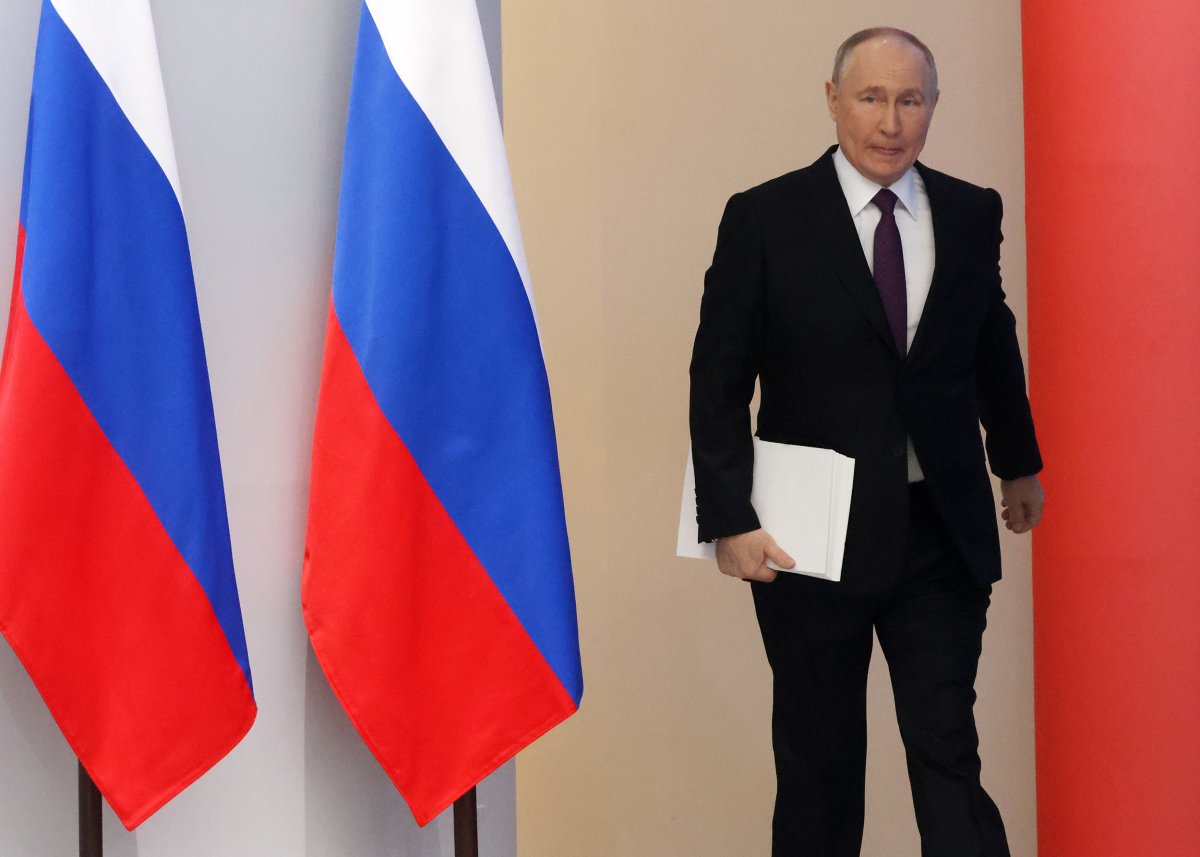World News – 2024 – Video Playlist | Video Playlists | Sites: | newsandtimes.org | links-newsandtimes.com | worldwebtimes.com | southcaucasusnews.com | russianworld.net | jossica.com | octobersurprise2016.org | bklyntimes.com | oceanavenuenews.com | fbireform.com | bloggersunite.net | octobersurprise-2024.org | Trump-News.org | Audio-Posts.com | Bklyn-NY.com | Posts Review – newsandtimes.org | Capitol-Riot.com |
The News And Times Review – NewsAndTimes.org
Russian President Vladimir Putin is uninterested in holding “good-faith” peace negotiations with Ukraine, according to U.S.-based think tank Institute for the Study of War (ISW).
The last direct talks between Russian and Ukrainian officials began in Turkey in March 2022. Details of a draft treaty that emerged from those negotiations in April 2022 were reported by The Wall Street Journal on Friday, revealing that Kyiv would have been required to enshrine Russian control of Crimea and become a “permanently neutral state that doesn’t participate in military blocs” in exchange for peace.
While the agreement was ultimately abandoned, Putin and Ukrainian President Volodymyr Zelensky have both since suggested uncompromising terms for ending the war that have made the prospect of any further negotiations doubtful. Putin suggested during his interview with former Fox News host Tucker Carlson in early February that Russia’s attempts to negotiate were being blocked by Zelensky.
An ISW report published on Friday evening argued that the reported details of the 2022 draft treaty showed that Putin was hoping for Kyiv’s permanent “demilitarization,” which would allow him to “enforce his will upon Ukraine without any substantial resistance.”

Russian President Vladimir Putin is pictured arriving to deliver a speech in Moscow on Thursday. U.S. think tank Institute for the Study of War asserted on Friday that Putin is not interested in “good-faith peace…
Russian President Vladimir Putin is pictured arriving to deliver a speech in Moscow on Thursday. U.S. think tank Institute for the Study of War asserted on Friday that Putin is not interested in “good-faith peace negotiations with Ukraine.” Contributor
The think tank noted that Putin’s press secretary, Dmitry Peskov, had responded to The Wall Street Journal report by saying that the draft was “no longer relevant” because “conditions have changed,” maintaining that his remarks indicated “the Kremlin has likely adopted a more extensive set of goals regarding Ukraine.”
“Reported details of the draft treaty suggest that Russia intended to use the treaty to set conditions for future attacks against Ukraine while also prompting the West to make concessions on Ukraine’s sovereignty,” the ISW report says.
“ISW continues to assess that Russian President Vladimir Putin maintains his maximalist objectives in Ukraine, which are tantamount to complete Ukrainian and Western capitulation, and that Russia has no interest in good-faith negotiations with Ukraine,” it continues.
Newsweek reached out for comment to Putin’s office via email on Friday night.
Putin argued during his interview with Carlson that Zelensky had the power to end the war but had signed “a ban on negotiating with Russia,” referring to a document that banned direct talks with Putin but not all Russian officials, which Zelensky signed after Russia announced the illegal annexation of four Ukrainian territories in fall 2022.
The Russian president then told the former Fox News host that Ukraine was refusing to negotiate “under the instruction from Washington,” while arguing that the U.S. and NATO could help bring the war to an end by recognizing all of the annexed parts of Ukraine as Russian territory “with dignity.”
Earlier this week, Turkish President Recep Tayyip Erdoğan offered to host a new round of Russia-Ukraine negotiations to establish the “general parameters of peace,” while stressing that his country supports “Ukraine’s independence, sovereignty, security and territorial integrity.”
Erdoğan also said that Turkey supports Zelensky’s “10 step peace formula,” which includes demands that the Kremlin has repeatedly deemed unacceptable, including the immediate withdrawal of all Russian troops from Ukraine and returning control of the territories that Moscow claimed to annex.
Newsweek is committed to challenging conventional wisdom and finding connections in the search for common ground.
Newsweek is committed to challenging conventional wisdom and finding connections in the search for common ground.

